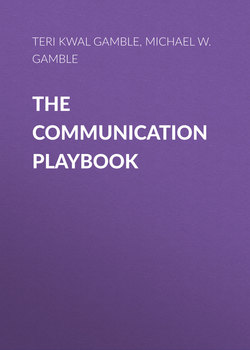Читать книгу The Communication Playbook - Teri Kwal Gamble - Страница 129
На сайте Литреса книга снята с продажи.
The Bright Side of Self-Esteem
ОглавлениеPeople with normally high self-esteem tend to be happier24 and less affected by peer pressure than those who have low self-esteem.25 Individuals with healthy self-esteem are not self-absorbed. Rather than filling themselves with “unwarranted self-regard,” they have a realistic sense of their abilities.26 In touch with both their strengths and their weaknesses, they display grit—a combination of passion and perseverance for a singularly important goal, together with resilience and a tolerance for feeling frustrated.27 Expecting a positive outcome, they persist in spite of failure. They are both confident and resilient, traits necessary for success.28
Researchers assert that high self-esteem is an effect of good performance, rather than its cause. According to J. D. Hawkins, president of the National Self-Esteem Association (NSEA), “Self-esteem is more than just feeling good about yourself. It’s about being socially and individually responsible.”29
Skill Builder
Me, You, and Popular and Social Media
1 Choose an adjective or color to describe how you felt when interacting with every person you came into contact with yesterday, either face-to-face or online. Evaluate why some people made you feel more positive or negative about yourself.
2 Consider how celebrities affect your picture of yourself. For example, how is your self-evaluation influenced by exposure to the lifestyles and standards of living experienced by pop-culture icons such as the Kardashians? To what extent do programs like theirs create expectations in you that are likely unattainable?
3 When texting or messaging friends, many of us now use a personal emoji, often a caricature or somewhat goofy cartoon of ourselves. Typically, while the one each of us creates may resemble us, and we may even make it lightly mocking, we also usually make it more physically pleasing—as if it represents our “better self.”
If you haven’t done so, download the Bitmoji app and create one to represent you. Explain the ways in which this selected public image represents an extension of yourself and what you hope it communicates to others.30
4. Consider how you feel after spending time on social media. Do you ever suffer from FOMO (fear of missing out) after seeing your friends failed to include you at a party? In general, do you feel better or worse once you log off? To what do you attribute these feelings?
